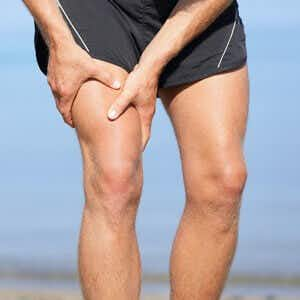
Over-the-counter medicines are seductively available. There is no prescription needed to buy one, usually for a reasonable price. And you don’t even have to go to the drugstore. Medicines like ibuprofen can be purchased at groceries and convenience stores with no difficulty. But does that mean they are completely safe?
Vitamin I for Tennis:
Q. My tennis partner is very competitive. He goes all in on every shot and beats up his body relentlessly to win every point. Then he suffers.
His knees are in bad shape, he has tennis elbow and he frequently starts limping before the end of a match.
Lately he has started taking big doses of ibuprofen an hour before we play. He calls it his “vitamin I.”
I worry that he could be doing himself damage. I once got an ulcer from taking too much naproxen. What’s your take?
Hazards of Ibuprofen for Athletes:
A. Ibuprofen is NOT vitamin I! Not only can NSAIDs (non-steroidal anti-inflammatory drugs) like ibuprofen cause stomach irritation or ulcers, they can raise blood pressure, cause muscle cramps and strain the kidneys. Research published in BMJ Open (April 19, 2013) suggests that runners who take NSAIDs before a race can sometimes damage their kidneys.
A randomized clinical trial from Saskatoon, Saskatchewan, Canada, showed that older women who took ibuprofen right after weight lifting exercise actually lost bone from their arms (Medicine and Science in Sports and Exercise, online Nov. 21, 2016). Individually, ibuprofen and resistance training helped prevent bone loss, but the combination was bad.
There is also some research indicating that ibuprofen might not be accomplishing the desired goal. One study of sixteen men compared a maximum OTC dose of ibuprofen to placebo after strenuous exercise (Frontiers of Physiology, March 29, 2016). Muscle soreness and markers of inflammation were the same between the two groups.
Even though ibuprofen (Advil, Motrin IB) and naproxen (Aleve) are available over the counter does not mean they are without side effects.
NSAID Side Effects:
- Heartburn, indigestion, abdominal pain, nausea, vomiting, constipation , diarrhea
- Headache, dizziness, drowsiness, disorientation
- Skin rash, sensitivity to sunlight, itching (potentially serious, so notify the MD!)
- Fluid retention, edema, high blood pressure
- Heart failure , heart attack, stroke
- Ringing in ears, hearing changes
- Visual disturbances
- Ulcers, bleeding ulcers, perforated ulcers
- Liver damage, kidney damage
- Blood disorders, anemia
- Worsening asthma symptoms
A Reader’s Story:
Here is just one example how ibuprofen can affect the cardiovascular system:
“Thank you for the message about NSAIDS through the years. Recently I had a tooth pulled. My dentist said I could take 800 mg of ibuprofen every 4 to 6 hours {4 OTC tablets}. He was very reassuring that this was safe. I knew better thanks to you folks.
I did take half that amount.
“My BP went up to 180/105 at the highest point. I carefully monitored it and took an extra BP pill when it got that high. As soon as I possibly could I cut back. I noticed I had gained 3 lbs in those few days that I have since lost now that I am not taking any NSAID. I attributed it to inactivity but now realize it may have been water retention.”
Cindy
For safer alternatives we suggest a variety of natural approaches to inflammation. You can find them in our Guide to Alternatives Treatments for Arthritis.
Share your own NSAID story below.
Revised 12/22/2016

